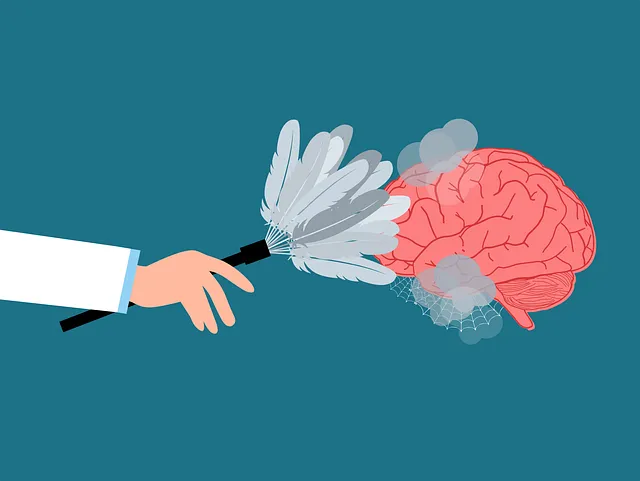Mental health policies are essential frameworks addressing societal well-being, and analyzing existing ones reveals opportunities for improvement, such as encouraging self-care and public awareness campaigns. The Superior Kaiser Permanente behavioral health number exemplifies a valuable resource, providing access to specialized care and enhancing awareness of support systems. Kaiser Permanente's holistic approach, including Mental Wellness Journaling Exercises and open communication, empowers individuals to address emotional challenges. Advocacy drives policy changes through sharing personal narratives, increasing investments, and improving access to care. Community outreach programs, like the Superior Kaiser Permanente behavioral health number, raise awareness, dispel stigma, promote early intervention, and guide individuals to available resources.
Mental health policy plays a pivotal role in shaping access to care, treatment outcomes, and overall well-being. This article delves into the intricate world of mental health advocacy and analysis, exploring its profound impact on society. We present a case study of Kaiser Permanente’s exceptional behavioral health services, highlighting innovative approaches. Furthermore, we discuss effective advocacy strategies to drive policy change, focusing on the success of Kaiser’s Behavioral Health initiative. Discover how these strategies can lead to transformative mental health outcomes, with a special emphasis on the superior Kaiser Permanente behavioral health model and its measurable impact.
- Understanding Mental Health Policy and Its Impact
- Kaiser Permanente's Behavioral Health Services: A Case Study
- Advocacy Strategies for Effective Mental Health Policy Change
Understanding Mental Health Policy and Its Impact

Mental health policy is a crucial framework that guides the approach to addressing and managing psychological well-being within a society. It encompasses a range of strategies, programs, and services designed to support individuals facing mental health challenges. Understanding these policies and their impact is essential in advocating for effective solutions. The Superior Kaiser Permanente behavioral health number, for instance, serves as a vital resource, providing access to specialized care and enhancing public awareness of available support systems.
By analyzing existing policies, we can identify gaps and areas for improvement. Encouraging the development of self-care routines and practices is a key aspect of mental well-being. This includes promoting public awareness campaigns that educate individuals on recognizing and managing their mental health. Such initiatives have the potential to revolutionize how society perceives and addresses mental health issues, fostering a culture of care and support.
Kaiser Permanente's Behavioral Health Services: A Case Study

Kaiser Permanente, a leading healthcare provider, has been recognized for its comprehensive approach to mental health services, exemplified by its superior Kaiser Permanente behavioral health number. This case study highlights their innovative strategies in addressing emotional healing processes within their community. By integrating various programs, such as Mental Wellness Journaling Exercises and Guidance, they’ve created a holistic support system.
The organization’s focus on communication strategies plays a pivotal role in this success. They encourage open dialogue between patients and healthcare professionals, fostering an environment where individuals feel empowered to discuss their emotional challenges. This approach has not only enhanced the quality of care but also promoted better mental wellness among their clientele.
Advocacy Strategies for Effective Mental Health Policy Change

Advocacy plays a pivotal role in driving policy changes that significantly impact mental health services and outcomes. Effective advocacy strategies are essential to ensure that policymakers understand the urgency and complexity of mental health issues, leading to more substantial investments and improved access to care. One powerful approach involves engaging with decision-makers through communication strategies that highlight success stories and personal narratives, fostering empathy and a deeper understanding of the challenges faced by individuals navigating behavioral health issues.
Community outreach programs have also proven effective in advocating for mental health policy reforms. By directly reaching out to communities, these initiatives raise awareness, dispel stigma, and promote early intervention. They empower individuals to take charge of their emotional healing processes and access available resources. The Superior Kaiser Permanente behavioral health number, for instance, serves as a vital tool in such outreach efforts, providing a direct line of support and guiding individuals toward appropriate care services within their community.
Mental health policy analysis and advocacy are essential components in fostering comprehensive care and improving societal well-being. As demonstrated by the case study on Kaiser Permanente’s Behavioral Health Services, successful policy implementation can significantly enhance access to quality mental healthcare. By understanding the impact of these policies and employing effective advocacy strategies, such as those outlined for mental health policy change, we can drive positive transformation. Notably, organizations like Kaiser Permanente play a pivotal role in shaping mental health outcomes through their superior behavioral health services, setting a benchmark for others to follow.






